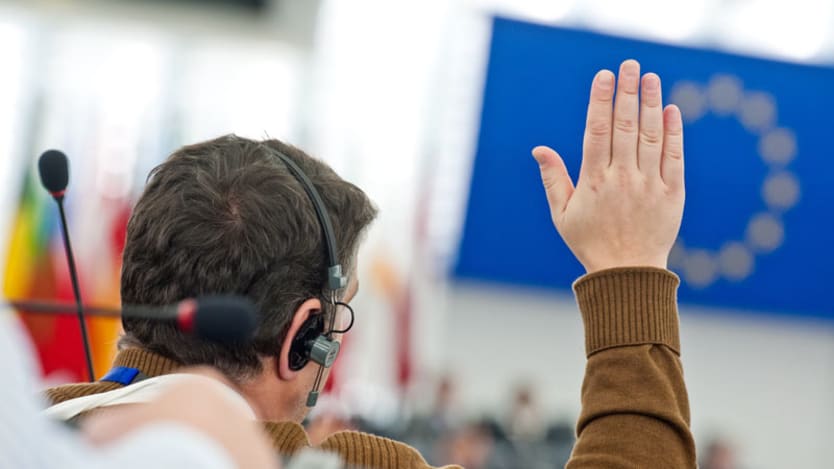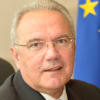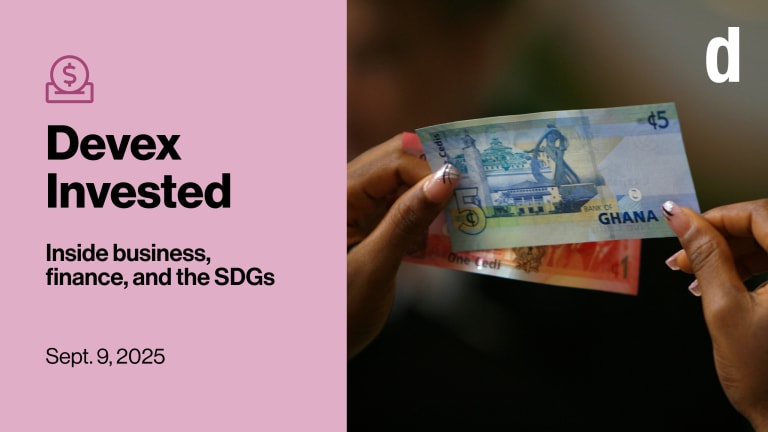
There’s a lot of misinformation about international development around at the moment. I remember reading recently, for instance, that in a United States survey, the average citizen thought that the U.S. government spent some 25 percent of its budget on aid. Of course, the truth is wildly different, with the U.S. and most EU member states spending less than 1 percent of their budget on development. In fact, you may be surprised to learn that lifting people out of poverty across the world with the help of European aid costs each EU citizen just 8 euro cents per day.
When you bear in mind that small sum, the results being achieved with EU aid are very impressive. For instance, since 2004, thanks to EU support 22.6 million insecticide-treated bednets have been distributed, 74 million people have been connected to improved drinking water, and 7.5 million births were attended by skilled health personnel.
As the biggest donor in the world (together with its member states), the EU has a great story to tell on development — but we need to make sure that we communicate that to our citizens, too.
This is why the new Eurobarometer survey results, announced today, make such pleasant reading for anyone working in development. They show that EU citizens clearly support what we do — almost 9 out of 10 Europeans (89 percent) say that helping developing countries is important. This is a 4 percent increase on last year’s figure. There have also been increases in the proportion of people who think tackling poverty in developing countries should be one of the main priorities of the EU (up 5 percentage points to 69 percent) and of national governments (up 5 percentage points to 50 percent).
Even better news, the vast majority of European respondents hold a positive view about the benefits of development cooperation and aid, with more than 7 out of 10 agreeing that tackling poverty in developing countries has a positive influence on EU citizens (up 3 percentage points since 2014 to 72 percent).
The European Year for Development
With each month of the European Year for Development set to focus on a specific subtopic, Devex takes a closer look at the 12 development themes that are slated to be at the heart of European debate and decision-making in 2015.
2015 was obviously an unprecedented year for international development being in the spotlight, both at a European and a global level, with the Addis Ababa Action Plan and the Sustainable Development Goals being adopted, the Climate Change Conference taking place in Paris and the current migration and refugee flows to Europe becoming one of the most burning issues for all of us.
In Europe, 2015 was also the European Year for Development — the first time that the EU has chosen a theme that revolves around the Union’s external actions and Europe’s role in the world. The goals of the EYD included increasing the awareness of citizens about how EU development aid works, as well as how and where development money is spent.
The results of this campaign are reflected in the fact that awareness levels are increasing, with almost one third having heard of the SDGs (which is significantly higher than the proportion of people who had heard of the Millennium Development Goals in 2013 — just 22 percent of EU citizens).
The poll also showed a new rising personal commitment to development. People continue to feel that they can make a difference with their personal consumption for example, with 50 percent prepared to pay more for groceries or other products from developing countries. More than half of respondents also agree that individuals can play a role in tackling poverty in developing countries (52 percent), and one-third are personally involved in helping developing countries (33 percent), with donations to organizations, such as NGOs or charities, as the most common activity (23 percent).
What is also interesting to point out is the fact that 73 percent of respondents agree that development aid is an effective way of tackling the root causes of irregular migration. Similarly, EU citizens see peace and security in developing countries as the most important challenge of the year (41 percent). This is followed by health and education (both 34 percent).
At a time when Europe is challenged to make the case of its relevance to its citizens, we should seize this opportunity and make sure that we show the results of what we do, the impact it has on the ground, the difference it makes to the lives of people and how it benefits Europe's values and interests.
Join the Devex community and access more in-depth analysis, breaking news and business advice — and a host of other services — on international development, humanitarian aid and global health.








